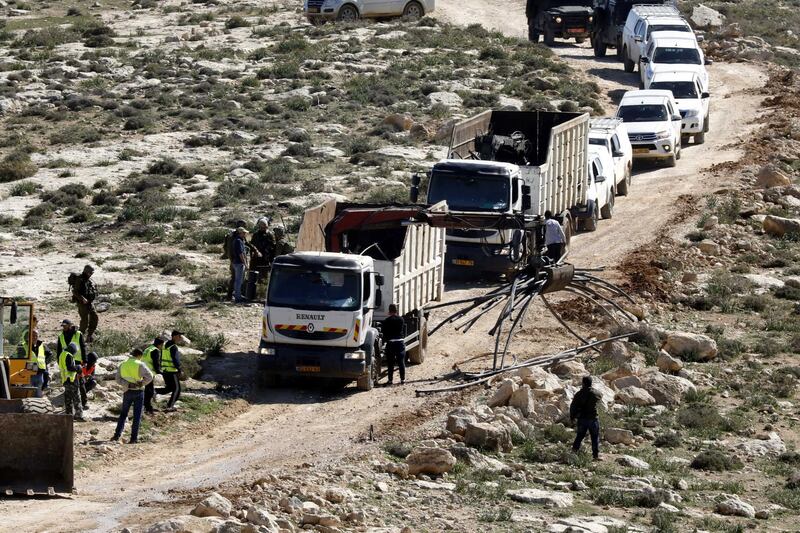The United States and Israel are rushing to stop the United Nations from releasing a blacklist of Israeli companies who do business in illegal settlements located in occupied Palestinian territory.
The global body’s High Commissioner for Human Rights is set to release the new list next month that will include several top Israeli companies who are operating in East Jerusalem and the West Bank which the Israeli military has occupied since the 1967 Arab-Israeli War.
The majority of the international community considers those settlements to be illegal under international law.
The list will also include companies operating in the occupied Golan Heights, which Israel claimed from Syria in the same conflict.
Publication of the list is set to take place at the UN Human Rights Council meeting next month and Israel is apparently working furiously behind the scenes to delay its publication, or have it nixed altogether.
There are fears in the Israeli government and in Washington that the revelation of such a list could leave Israeli companies liable to legal action and potentially damage investment in Israel’s economy if companies leave for fear of being tainted by association with the settlement enterprise.
But their opposition appears unlikely to change the mind of the UN body as the gathering of company names operating illegally in occupied Palestinian territory was approved in a UN resolution passed in 2016. The UN has notified the companies on the list about their inclusion.
Some of the companies that could be implicated in the blacklist include pharmaceutical company Teva, transportation company Egged, and defence firm Elbit, which helped construct the Israeli separation wall that lies at the centre of accusations of apartheid. International firms such as Coca-Cola could also be included in the list.
Business executives are now lobbying Israeli Prime Minister Benjamin Netanyahu and other senior Israeli government officials to stop its publication, according to Israeli media reports, including one who called the list’s publication a matter of national urgency.
“We believe the inclusion of Israeli companies in the UN Human Rights Council's blacklist might expose those companies to legal procedures, prompting international corporations to pull out of their investments in Israel,” CEO of Hot Telecommunications Systems Tal Granot-Goldstein wrote to the Israeli premier and the Israeli Foreign Ministry, according to one Israeli newspaper.
“We request that the Israeli government and the Foreign Ministry intervene to prevent the publication of this list. Handling this matter is a national interest of the utmost importance."
A UN report published in 2018 said that 206 companies, both Israeli and international, are doing business in Israel’s illegal settlements in the West Bank and East Jerusalem.
The list’s publication has already been delayed two times, once in 2017 and once in 2018.
Despite the American and Israeli opposition to the list’s publication, neither country is a member of the UN Human Rights Council.
Israel says the body is biased against it for condemning its occupation of more than four million Palestinians, while US President Donald Trump pulled Washington out of the body in June 2018 based on the same reasoning.
The Palestinians seek a sovereign independent state with East Jerusalem as its capital, joined by the West Bank and the Gaza Strip. They say that Israeli settlements and normalisation of those outposts through the presence of major companies is aimed at providing major obstacles to a contiguous and functioning Palestinian state on the lands that Israel now occupies.







